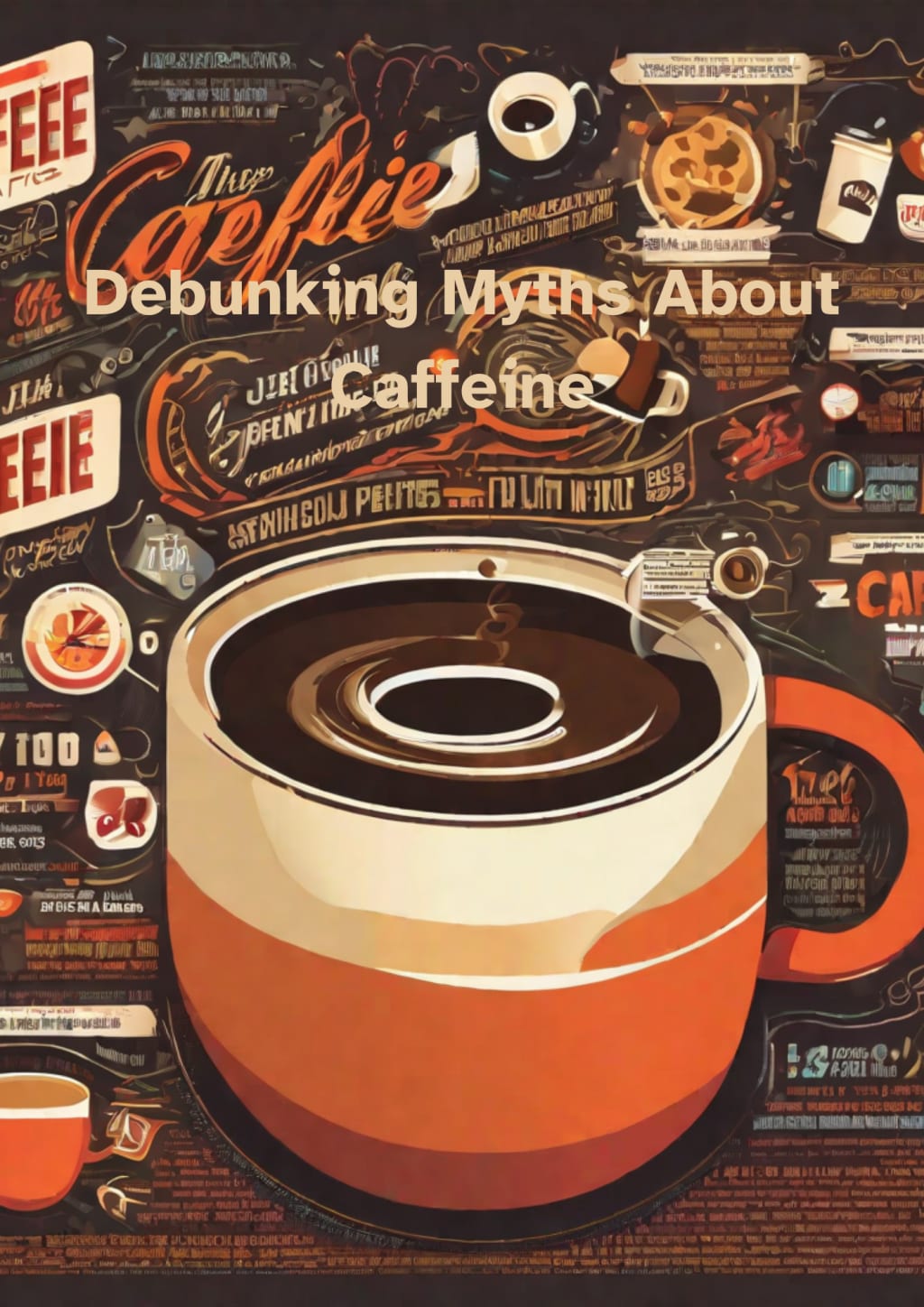Doctors Debunked 13 Caffeine Myths
Debunking Myths About Caffeine

Debunking Myths About Caffeine: What You Need to Know
**Myth 1: Caffeine is Bad for You**
- The idea that caffeine is harmful is largely a misconception.
- Concerns about caffeine causing issues like osteoporosis are unfounded, as they would require excessive daily consumption (700+ mg), whereas typical daily caffeine intake is much lower (usually less than 300 mg).
- Studies have shown that caffeine and coffee can have health benefits, such as reducing the risk of various cancers, chronic liver disease, and inflammatory conditions.
- Consuming a moderate amount of caffeine is generally considered safe and may even have health advantages.
**Myth 2: Caffeine Will Make Up for Lost Sleep**
- Caffeine cannot fully compensate for inadequate or lost sleep; it primarily increases alertness without providing genuine energy.
- Caffeine interferes with the natural sleep-inducing molecule adenosine in the brain, creating the illusion of wakefulness.
- Relying on caffeine to replace sleep disrupts sleep patterns, reducing the time spent in deep, restorative REM sleep.
**Myth 3: Decaf Coffee Has No Caffeine**
- Decaf coffee doesn't mean "caffeine-free"; it indicates reduced caffeine content.
- FDA recommendations suggest removing at least 95% of the caffeine from decaf coffee, but actual caffeine levels can vary (typically around 15 mg per cup).
- Some individuals with acid reflux may benefit from reducing caffeine intake, although it doesn't need to be eliminated entirely.
**Myth 4: Drinking Coffee Stunts Your Growth**
- Coffee and caffeine consumption do not impact your growth significantly.
- Most growth occurs during childhood and adolescence, with genetic factors, nutrition, and overall health being more influential than caffeine intake.
- The amount of caffeine consumed by teenagers is well below levels associated with any concerns about bone health.
**Myth 5: Soda Contains Less Caffeine Than Coffee**
- The caffeine content in beverages varies significantly, and some sodas have more caffeine than many coffee drinks.
- A can of cola may contain 40 mg of caffeine, surpassing the caffeine content of an average espresso shot (27 mg).
- The amount of caffeine in a beverage should be checked on the label.
**Myth 6: Caffeine Detoxifies Your Body**
- Caffeine detoxification is a dubious concept and not supported by scientific evidence.
- Attempts to use caffeine as an enema can be dangerous and are not proven to have detoxifying effects.
- The body naturally detoxifies through the liver, kidneys, and gastrointestinal system, making additional "detox" measures unnecessary.
**Myth 7: Caffeine Dehydrates You**
- Caffeine has mild diuretic effects, slightly increasing urine output (around 4 fluid ounces per 300 mg of caffeine).
- The diuretic effects of caffeine are not substantial, especially when considering that many caffeinated beverages contain water.
- Feeling thirsty after caffeine consumption is often related to additives or a lack of overall hydration.
**Myth 8: Caffeine Is Addictive**
- Caffeine dependence is not generally categorized as addiction. People often use caffeine to maintain alertness but can quit without severe withdrawal symptoms.
- Discontinuing caffeine suddenly might lead to discomfort for a short period, but it's not akin to drug addiction.
**Myth 9: Having More Than One Cup of Coffee a Day Is Bad for You**
- Consuming 400 mg or less of caffeine daily is generally considered safe for most individuals.
- The definition of a "cup" varies, but it's typically around 8 fluid ounces.
- Certain medical conditions may require lower caffeine intake, so consulting with a healthcare provider is important.
**Myth 10: You Won't Sleep if You Have Caffeine at Night**
- The effect of caffeine on sleep can vary from person to person.
- How caffeine is metabolized depends on genetics, so some people can consume caffeine at night without significant sleep disruption.
- While caffeine can affect sleep patterns and the quality of sleep, it doesn't universally prevent sleep.
**Myth 11: Caffeine Can Mess With Your Heart Rhythm**
- Moderate caffeine consumption does not increase the risk of arrhythmias, and it can even have a protective effect.
- Heart palpitations and transient changes in blood pressure can occur with caffeine, but they are not typically harmful or long-lasting.
- Always consult a cardiologist for personalized advice, but caffeine is generally not associated with heart rhythm issues.
**Myth 12: Tea is Healthier Than Coffee**
- The idea that tea is categorically healthier than coffee is a myth.
- The healthiness of these beverages depends on various factors, including sugar and additive content.
- Both tea and coffee have potential health benefits, and it's essential to consider individual preferences and health conditions when choosing between them.
**Myth 13: The Way You Prepare Your Coffee Doesn't Matter**
- The caffeine content in your coffee can be influenced by factors such as particle size, brew time, water temperature, and dilution.
- Different brewing methods may yield varying caffeine levels, with some methods extracting more caffeine than others.
- The caffeine content of coffee can vary, so it's worth considering how you prepare your coffee if you want to control your caffeine intake.
In conclusion, caffeine and coffee have been unfairly stigmatized with several myths. While it's essential to consume caffeine in moderation and consider individual health circumstances, it's clear that caffeine offers benefits and doesn't deserve the negative reputation it often receives. Consult with a healthcare professional for personalized recommendations on caffeine consumption.
About the Creator
Muhammad Hanan
I'm Muhammad Hanan, your curator of captivating facts and knowledge. Whether you're a lifelong learner, a trivia enthusiast, or just curious, I'm here to dazzle you with mind-bending insights.





Comments (1)
This informative piece effectively dispels common myths about caffeine, providing a balanced view on its health impacts. It encourages a nuanced understanding of caffeine consumption, debunking misconceptions and promoting informed choices for individuals.